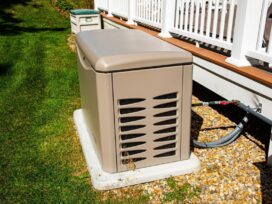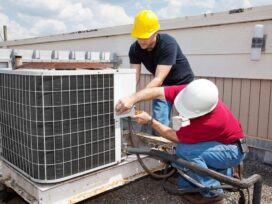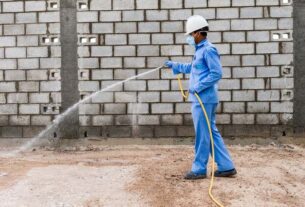
Comprehensive Guide to Plumbing Services and Choosing the Right Plumbing Company
Plumbing is one of those essential services we often take for granted—until a leak springs, a drain clogs, or water pressure drops. Whether you’re building a new home, renovating a bathroom, or facing an unexpected emergency, understanding the landscape of plumbing services and knowing how to select a reputable plumbing company can save you time, money, and headaches down the line. This article will walk you through the most common plumbing services, explain what professional plumbing companies offer, and provide tips for choosing the right provider for your needs.
-
Overview of Plumbing Services
1.1 Routine Maintenance and Inspections
- Drain Cleaning & Unclogging: Over time, hair, grease, soap residue, and mineral deposits can accumulate inside pipes, leading to slow drainage or complete blockages. Professional plumbers use specialized tools—such as motorized drain snakes, hydro-jetting equipment, and inspection cameras—to clear obstructions safely and effectively.
- Leak Detection & Repair: A small, unnoticed leak can turn into extensive water damage. Licensed plumbers employ electronic leak-detection devices, infrared cameras, and pressure-testing methods to pinpoint leaks behind walls or under slabs. Once the source is located, they can repair pipes, joints, and fixtures to prevent further issues.
- Water Heater Inspection: Traditional tank-style and modern tankless water heaters both require periodic checks. A plumber will inspect heating elements, flush sediment from tanks, test pressure-relief valves, and ensure the unit operates at optimal efficiency—extending its lifespan and safeguarding against sudden failures.
1.2 Installation & Upgrades
Fixture Installation: Whether you’re installing a new sink, bathtub, showerhead, or toilet, proper installation is crucial for preventing leaks and ensuring efficient water flow. Plumbers also handle more complex fixtures—such as whirlpool tubs, bidets, and commercial-grade faucets—making sure they comply with local codes.
Pipe Replacement & Repiping: Aging pipes (especially galvanized, polybutylene, or lead plumbing) can corrode, burst, or contribute to low water pressure. A full or partial repiping service involves removing old piping and installing new materials—commonly copper, PEX, or PVC—backed by manufacturer warranties.
Water Treatment Systems: Hard water can lead to scale buildup in pipes and appliances. Many plumbing companies offer water softener installation, carbon filtration, and reverse-osmosis systems to improve water quality. These options help protect both your plumbing infrastructure and household members’ health.
1.3 Emergency & Specialty Services
24/7 Emergency Repairs: Burst pipes, sewage backups, and failed water heaters rarely occur at convenient times. A reliable plumbing company will offer around-the-clock emergency service, arriving promptly to mitigate damage—securing shut-off valves, replacing broken sections, and sanitizing affected areas.
Sewer Line Repair & Replacement: Cracked or collapsed sewer lines can cause widespread property damage. Modern trenchless techniques—like pipe bursting and cured-in-place pipe (CIPP) lining—allow plumbers to restore or replace underground pipes with minimal digging, cutting down on restoration costs and landscaping disruption.
Commercial & Industrial Plumbing: Beyond residential needs, many companies serve commercial clients—offices, restaurants, retail stores, schools, and manufacturing facilities. Services include grease trap maintenance, backflow prevention testing, boiler installation, and large-scale repiping projects that comply with regulatory standards.
-
What Defines a Professional Plumbing Company?
2.1 Licensing, Insurance, and Certifications
- Licensing Requirements: In most regions, plumbers must pass a state or municipal licensing exam covering codes, safety procedures, and practical skills. Always verify that the company’s technicians are properly licensed in your jurisdiction.
- Insurance & Bonding: Accidents happen—even to experts. Ensure your chosen company carries general liability insurance and workers’ compensation coverage. Bonding protects you if the plumber fails to complete the job or causes damage.
- Manufacturer & Industry Certifications: Some plumbing companies partner with brands like Bosch, Rheem, Kohler, or Navien for specialized equipment installations. Look for certifications from these manufacturers, as well as membership in trade organizations (e.g., the Plumbing-Heating-Cooling Contractors Association).
2.2 Reputation & Customer Service
- Online Reviews & Testimonials: Check platforms such as Google, Yelp, Angie’s List, and the Better Business Bureau. Look for consistently positive feedback regarding punctuality, professionalism, cleanliness, and transparent pricing.
- Upfront Pricing & Estimates: Reputable companies provide free or low-cost estimates—often based on an on-site inspection. They break down labor, materials, permits, and potential additional fees. Avoid any plumber who refuses to put a written estimate in writing or pressures you into last-minute decisions.
- Warranty & Satisfaction Guarantees: A solid plumbing company stands behind its work. Ask about warranties on labor (commonly one year for repairs) and parts (varies by manufacturer). If issues arise after service, a reputable plumber will return to address them promptly.
-
How to Select the Right Plumbing Company
3.1 Define Your Needs & Budget
- Scope of Work: Are you facing a minor clog or a large-scale bathroom remodel? Smaller tasks may be handled by local, single-technician outfits. For complex installations—especially if you’re building or renovating—look for companies with proven experience in larger projects and project management capabilities.
- Budget Considerations: Solicit multiple quotes (at least two to three) for any non-emergency work. Compare not just the bottom-line figure, but the quality of materials, projected timeline, and payment terms (e.g., deposit requirements, financing options).
3.2 Ask Probing Questions
What is your response time for emergencies?
A company that offers 24/7 service should be frank about typical arrival windows—often 1–2 hours after the initial call.
Do you conduct background checks on your technicians?
If workers will be entering your home unattended, it’s reasonable to inquire about the company’s hiring and vetting practices.
How do you handle unforeseen complications?
In plumbing, discovering mold, hidden rot, or non-code-compliant piping is not uncommon. Find out how the plumber communicates such issues and handles additional costs.
Can you provide references from recent clients?
A confident, established business will readily share referrals from homeowners or businesses where they’ve completed similar work.
3.3 Verify Contracts & Permits
Formal Agreement: Before any work begins, secure a detailed contract—listing scope, timeline, materials, payment schedule, and warranty terms.
Permitting Process: Major installations or repiping often require permits and inspections from local building departments. Ensure the plumbing company handles permit applications (and associated fees) on your behalf. Working without proper permits can lead to fines or issues when selling the property later.
-
Typical Costs & Value Considerations
Service Type Average Cost Range (USD) Notes
Drain Cleaning $100 – $350 Depends on severity and method (snaking vs. hydro-jetting)
Fixing a Leaky Faucet $75 – $200 Includes parts (O-rings, seals) and labor
Water Heater Repair $150 – $600 Varies by element replacement or valve repair
Complete Water Heater Install $800 – $2,500 Depends on tank vs. tankless, capacity, and complexity
Pipe Repiping (per linear foot) $50 – $150 Material choice (copper vs. PEX vs. PVC) affects cost
Toilet Installation $150 – $500 Higher end if removal of old flange or floor repairs needed
Note: Prices vary by region, property type, and local labor rates. Always obtain a detailed written estimate.
While budget is important, don’t automatically select the lowest bid. Cutting corners—such as using subpar parts or inexperienced labor—can lead to repeated repairs and higher long-term costs. Investing in a reputable company with transparent pricing and solid warranties often pays dividends in reliability and peace of mind.
-
Tips for Maintaining Your Plumbing System
Regular Visual Checks
- Inspect under sinks, around toilets, and near water heaters for any signs of moisture or discoloration. Catching a small drip early can prevent major damage.
Preventive Drain Care
- Use hair-catching strainers in showers and regularly flush drains with a mixture of hot water and a baking soda/vinegar solution to minimize buildup.
Monitor Water Pressure
- Low pressure might indicate a hidden leak or sediment buildup. Invest in a pressure gauge (available for under $20) to check periodically. Ideal home water pressure ranges from 40 to 60 psi.
Insulate Exposed Pipes
- In colder climates or unheated spaces (e.g., basements, crawl spaces), insulate pipes to protect against freezing and bursting during winter months.
Schedule Annual Professional Inspections
- Even if everything seems fine, a licensed plumber can detect early signs of corrosion, wear, or code violations—helping you avoid costly emergencies.
Plumbing is a critical component of any residential or commercial property—and finding the right plumbing company ensures your system stays safe, efficient, and code-compliant. By familiarizing yourself with the types of plumbing services available, checking licenses/insurance, comparing quotes, and understanding warranties, you’ll be well-equipped to hire a trustworthy professional. Regular maintenance and early intervention on minor issues can extend the life of your plumbing infrastructure, ultimately saving time and money. When it comes to pipes, drains, and fixtures, don’t wait for a catastrophe—invest in quality service now to keep your water flowing smoothly for years to come.







